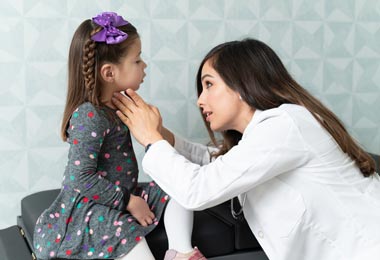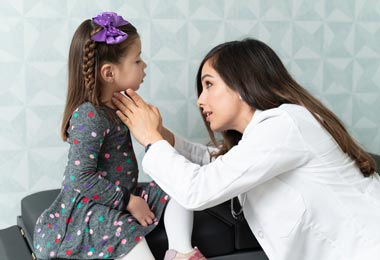Urinary Incontinence in Children
What is urinary incontinence (enuresis)?
Urinary incontinence is the loss of bladder control. In children under age 3, it’s normal to not have full bladder control. As children get older, they become more able to control their bladder. When wetting happens in a child who is old enough to control his or her bladder, it’s known as enuresis. Enuresis can happen during the day or at night. Enuresis can be frustrating. But it’s important to be patient and remember that it’s not your child’s fault. A child does not have control over enuresis. And there are many ways to treat enuresis and help your child.
When is enuresis a problem?
Many children may have enuresis from time to time. It can take some children longer than others to learn to control their bladder. Girls often have bladder control before boys. Because of this, enuresis is diagnosed in girls earlier than in boys. Girls may be diagnosed as young as age 5. Boys are not diagnosed until at least age 6.
Types of enuresis
Doctors divide enuresis into 4 types. A child may have one or more of these types:
-
Diurnal (daytime) enuresis. This is wetting during the day.
-
Nocturnal (nighttime) enuresis. This means wetting during the night. It’s often called bedwetting. It’s the most common type of enuresis.
-
Primary enuresis. This occurs when a child has not fully mastered toilet training.
-
Secondary enuresis. This is when a child has a period of dryness, but then returns to having periods of wetting.
What causes enuresis?
Enuresis has many possible causes. The cause of nighttime enuresis often is not known. But some possible causes may include one or more of these factors:
-
Anxiety
-
Attention deficit/hyperactivity disorder (ADHD)
-
Certain genes
-
Constipation that puts pressure on the bladder
-
Diabetes
-
Not enough antidiuretic hormone (ADH) in the body during sleep
-
Obstructive sleep apnea (OSA)
-
Overactive bladder
-
Slower physical development
-
Small bladder
-
Structural problems in the urinary tract
-
Trouble feeling that the bladder is full while asleep
-
Urinary tract infection (UTI)
-
Very deep sleep
Daytime enuresis may be caused by:
-
Anxiety
-
Caffeine
-
Constipation that puts pressure on the bladder
-
Not going to the bathroom often enough
-
Not urinating enough when going
-
Overactive bladder
-
Small bladder
-
Structural problems in the urinary tract
-
Urinary tract infection (UTI)
How is enuresis diagnosed?
Your child’s health care provider will ask about your child’s medical history. Make sure to tell the health care provider:
-
If other members of the family have had enuresis
-
How often your child urinates during the day
-
How much your child drinks in the evening
-
If your child has symptoms such as pain or burning when urinating
-
If the urine is dark or cloudy or has blood in it
-
If your child is constipated
-
If your child has had recent stress in his or her life
The health care provider may give your child a physical exam. Your child may also need tests, such as urine tests or blood tests. These are done to look for a medical problem, such as an infection or diabetes.
How is enuresis treated?
In many cases, enuresis goes away over time and does not need to be treated. If treatment is needed, many methods can help. These include:
-
Changes in fluid intake. You may be told to give your child less fluids to drink at certain times of day, or in the evening.
-
Keeping caffeine out of your child’s diet. Caffeine can be found in cola and many sodas. It is also found in black teas, coffee drinks, and chocolate.
-
Night waking on a schedule. This means waking your child in the night to go urinate.
-
Bladder training. This includes exercises and urinating on a schedule.
-
Using a moisture alarm. This uses a sensor that detects wetness and sounds an alarm. Your child then gets up to use the bathroom.
-
Medications. Medicines can boost ADH levels or calm bladder muscles.
-
Counseling. Working with a counselor can help your child cope with life changes or other stress.
Work with your child’s health care provider to find out the best choices that may help your child.
Tips for managing enuresis
-
Remember, your child can’t control the problem without help. Make sure not to scold or blame. Make sure your child is not teased by family or friends.
-
Keep in mind that many children outgrow enuresis.
-
Protect your child’s mattress bed with a fitted plastic sheet.
-
Have a change of clothes on hand while out and about.





